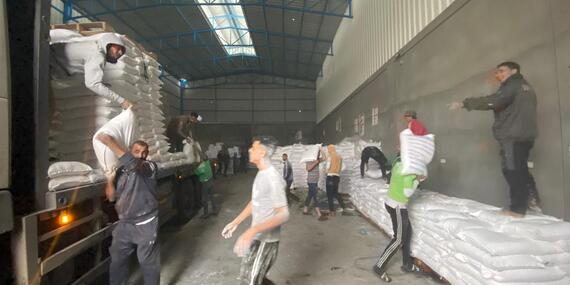Today's top news: Occupied Palestinian Territory, South Sudan

Occupied Palestinian Territory
The Office for the Coordination of Humanitarian Affairs (OCHA) reports that a Palestine Red Crescent Society (PRCS) aid convoy carrying food, medical supplies, water, and non-food items reached areas to the north of Wadi Gaza yesterday on 28th November. However, the bulk of aid distribution during the day took place in areas south of Wadi Gaza, where the vast majority of internally displaced persons (IDPs) are staying.
Despite an increase in supplies entering Gaza since the start of the pause, the volume of aid entering is insufficient to meet the extensive needs. Aid groups have called for the immediate re-opening of more crossing points, including for the entry of commercial goods.
UNRWA continued distributing wheat flour to IDPs in and outside shelters. Key service providers, including hospitals, water and sanitation facilities, and IDP shelters, have been able to operate during the pause with daily fuel provision.
On 28 November, the World Health Organization (WHO) warned about the high risk of infectious disease in IDP shelters and said that this was because of severe overcrowding and the disruption of health, water, and sanitation systems. This concern is underscored by recent reports of Hepatitis cases at shelters in the south.
South Sudan
Yesterday, the humanitarian community in South Sudan launched the humanitarian appeal for 2024.
The appeal seeks $1.8 billion to support 6 million people across South Sudan next year. An estimated 7.1 million people will continue to be food insecure during the lean season from April to July. Some 1.6 million children will remain at critical risk of malnutrition.
The Sudan conflict has impacted the South Sudan economy, increasing the prices of food and the number of vulnerable people who need assistance.
The acting Humanitarian Coordinator in South Sudan, Marie-Helene Verney, said that humanitarians will continue to work to ensure that people no longer have to depend on aid. She added that, sadly, we expect climate change and other multiple shocks to continue to drive acute humanitarian needs next year.
The 2023 Humanitarian Response Plan for South Sudan, calling for $1.7 billion, is currently 54 per cent funded at just over $900 million.
